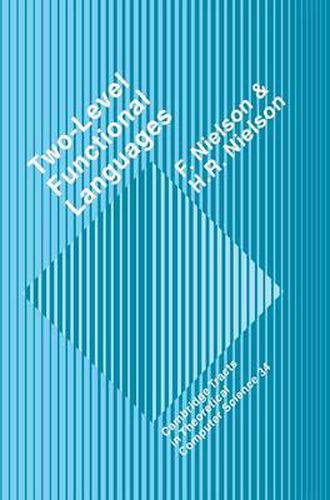Readings Newsletter
Become a Readings Member to make your shopping experience even easier.
Sign in or sign up for free!
You’re not far away from qualifying for FREE standard shipping within Australia
You’ve qualified for FREE standard shipping within Australia
The cart is loading…






The authors describe here a framework in which the type notation of functional languages is extended to include a notation for binding times (that is run-time and compile-time) that distinguishes between them. Consequently, the ability to specify code and verify program correctness can be improved. Two developments are needed, the first of which introduces the binding time distinction into the lambda calculus in a manner analogous with the introduction of types into the untyped lambda calculus. Methods are also presented for introducing combinators for run-time. The second concerns the interpretation of the resulting language, which is known as the mixed lambda-calculus and combinatory logic. The notion of parametrized semantics is used to describe code generation and abstract interpretation. The code generation is for a simple abstract machine designed for the purpose, it is close to the categorical abstract machine. The abstract interpretation focuses on a strictness analysis that generalizes Wadler’s analysis for lists. It is also shown how the results of abstract interpretation may be used to improve the code generation.
$9.00 standard shipping within Australia
FREE standard shipping within Australia for orders over $100.00
Express & International shipping calculated at checkout
The authors describe here a framework in which the type notation of functional languages is extended to include a notation for binding times (that is run-time and compile-time) that distinguishes between them. Consequently, the ability to specify code and verify program correctness can be improved. Two developments are needed, the first of which introduces the binding time distinction into the lambda calculus in a manner analogous with the introduction of types into the untyped lambda calculus. Methods are also presented for introducing combinators for run-time. The second concerns the interpretation of the resulting language, which is known as the mixed lambda-calculus and combinatory logic. The notion of parametrized semantics is used to describe code generation and abstract interpretation. The code generation is for a simple abstract machine designed for the purpose, it is close to the categorical abstract machine. The abstract interpretation focuses on a strictness analysis that generalizes Wadler’s analysis for lists. It is also shown how the results of abstract interpretation may be used to improve the code generation.